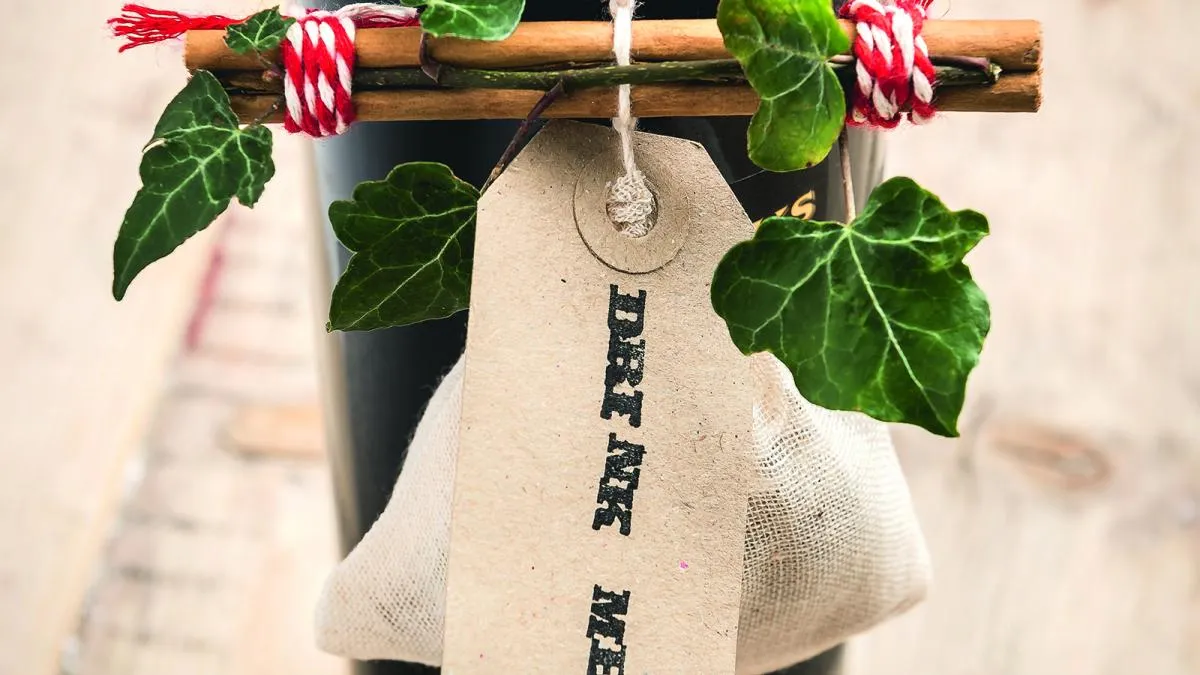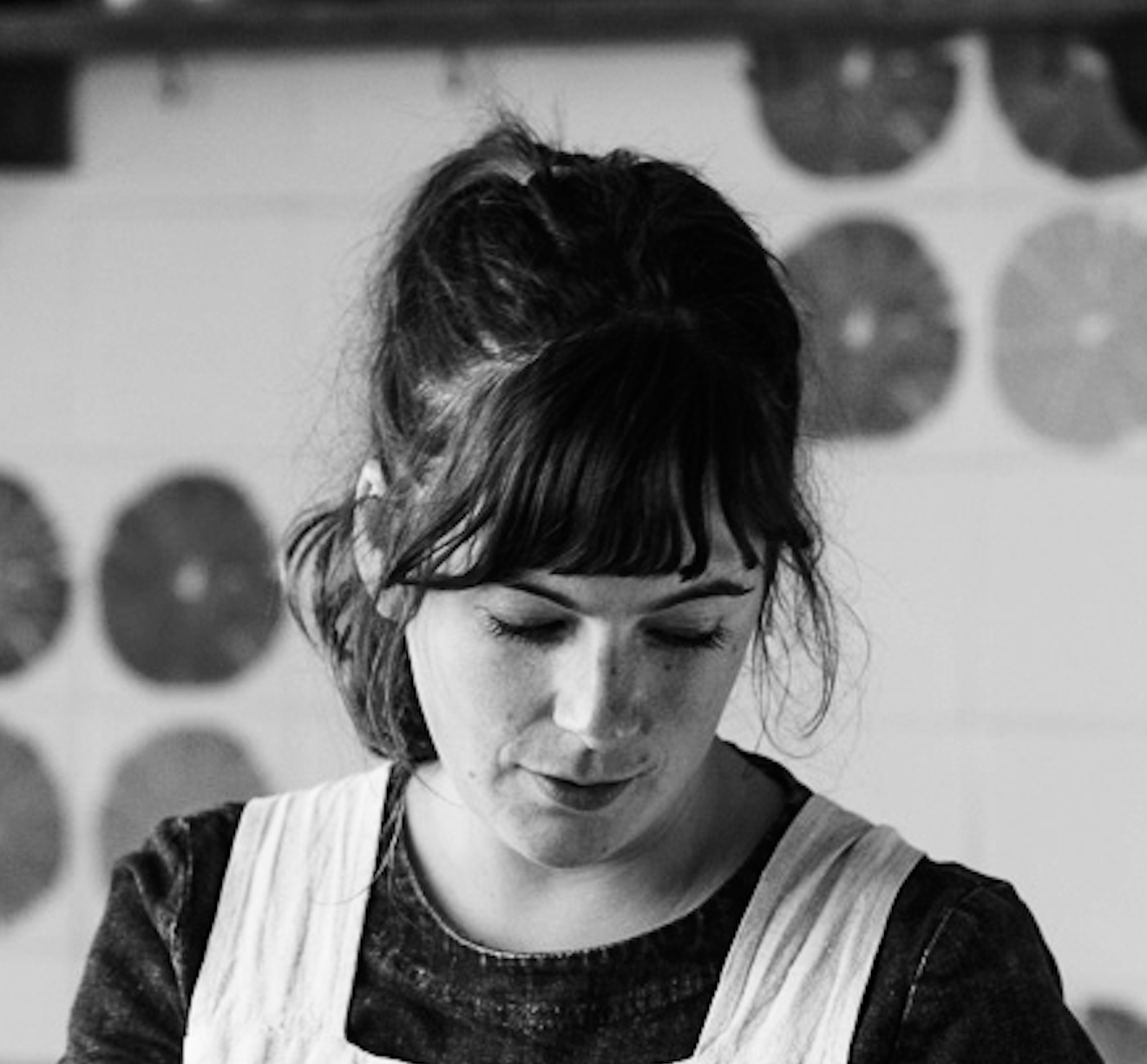Mulled wine is the quintessential warming Christmas drink, but have you ever heard of a smoking bishop?
Mulled drinks have been a festive tradition for centuries, so brush the snow from your shoulders and warm yourself up with a spiced drink with the flavour of Christmas past.
Here's our guide to traditional mulled drinks, including history and easy recipes
More festive content:
The history of mulled drinks
In medieval times, mulled drinks denoted prosperity. Mulling also likely hid a great deal of rough booze, by warming the alcohol and flavouring it with spice and sugar.
Later, the Victorians made mulled drinks a favourite festive pastime, and warm fiery drinks remain popular in winter. Scandinavian glögg and German glühwein are standard fare at Christmas markets, but why not give your festive gathering a twist with these traditional British – and fantastically strangely named – hot spiced drinks?
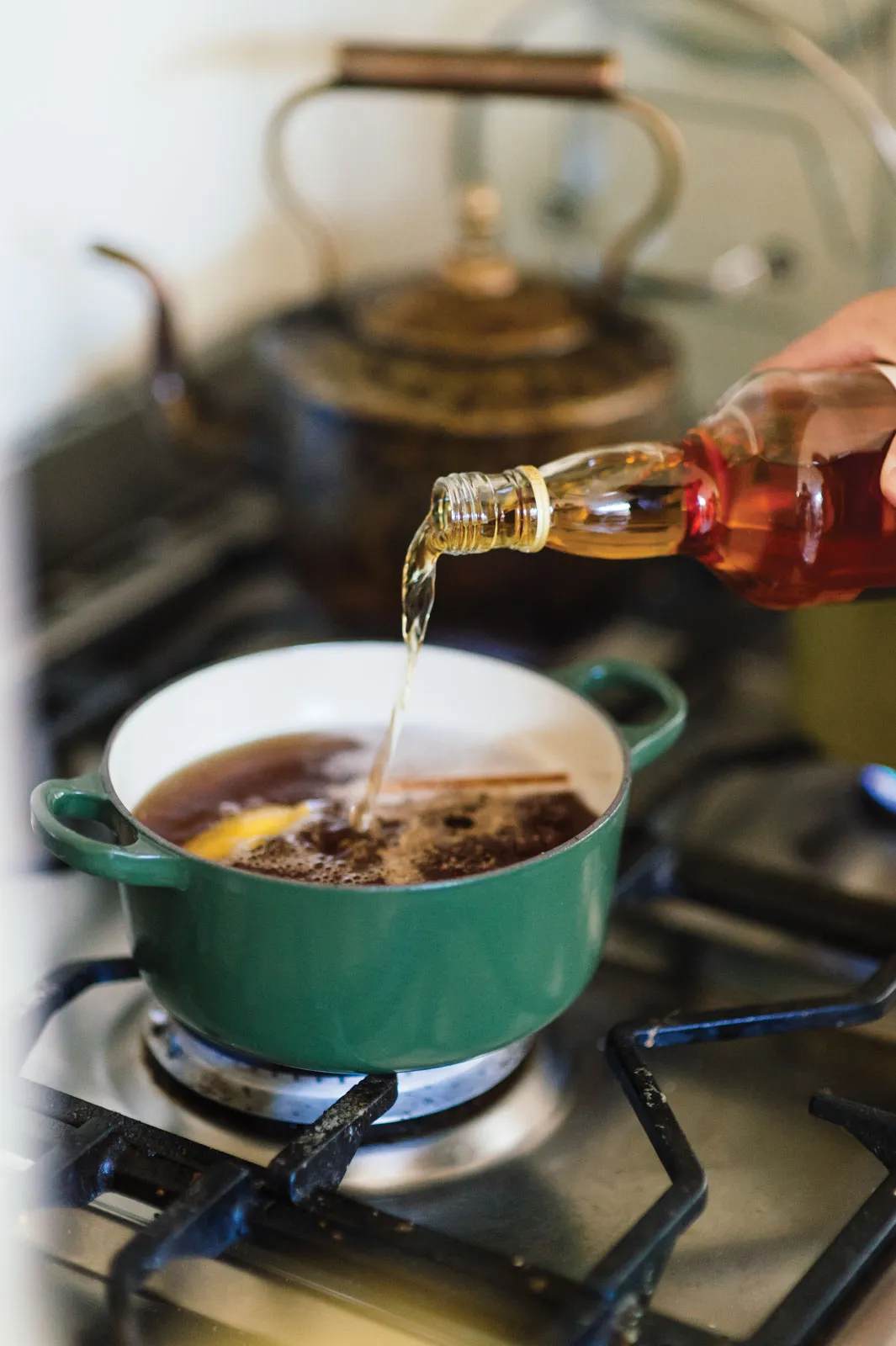
It’s a great touch to accompany your tipples with tantalising baked morsels. Use seasonal ingredients and choose bold savoury flavours to complement the sweet fiery booze. Having one sugary option to serve those with a sweet tooth is also good idea. Cheers!
- Christmas recipe: how to make coconut ice
- Christmas recipe: homemade cheese straws
Mulled drink recipes
Smoking Bishop
‘I’ll raise your salary, and endeavour to assist your struggling family,’’ it’s the part in Charles Dickens’ A Christmas Carol when Scrooge comes good and Bob Cratchit’s fortunes change for the better. Meant for sharing, Scrooge rustles up some Smoking Bishop and begins to make amends.
The smoke in smoking refers to the steaming tendrils of smoke as the drink warms – but never boils, lest any alcohol evaporates. Bishop was the 19th century code name for port. There are other versions of the drink, all of which signify a drink enjoyed by those with a certain largess.
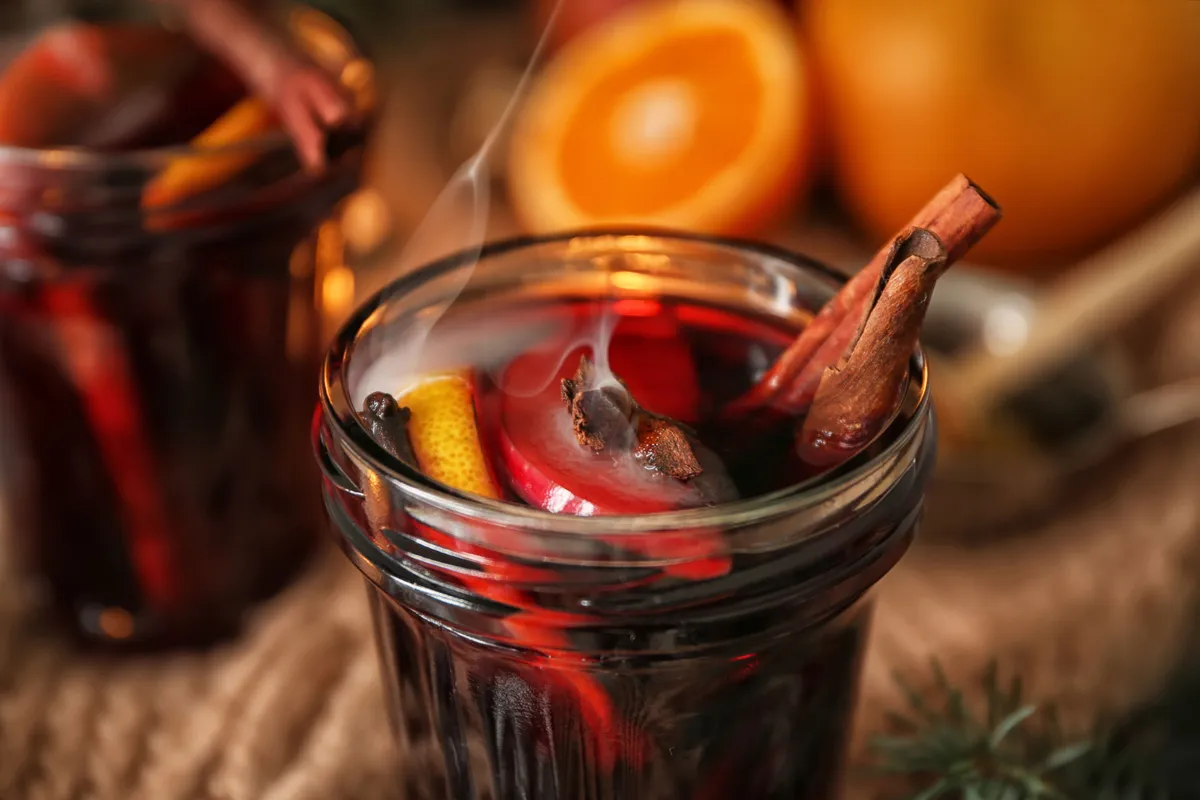
Mulled Ale
Mulled ale has the reputation of being a drink more commonly served to the poor with mulled wine favoured by the rich. In Britain and other beer drinking countries, warming the ale and sweetening it with sugar and or honey was thought to be more beneficial to the health.
Again, spices likely masked some pretty rough beer making the end drink more palatable than its original form. A shot of something stronger, whatever spirit to hand, but mostly rum or brandy, mulled ale then takes the name of a flip. Flips were popular on both sides of the Atlantic, associated as they were with sailors and much raucous, seafaring revelry.
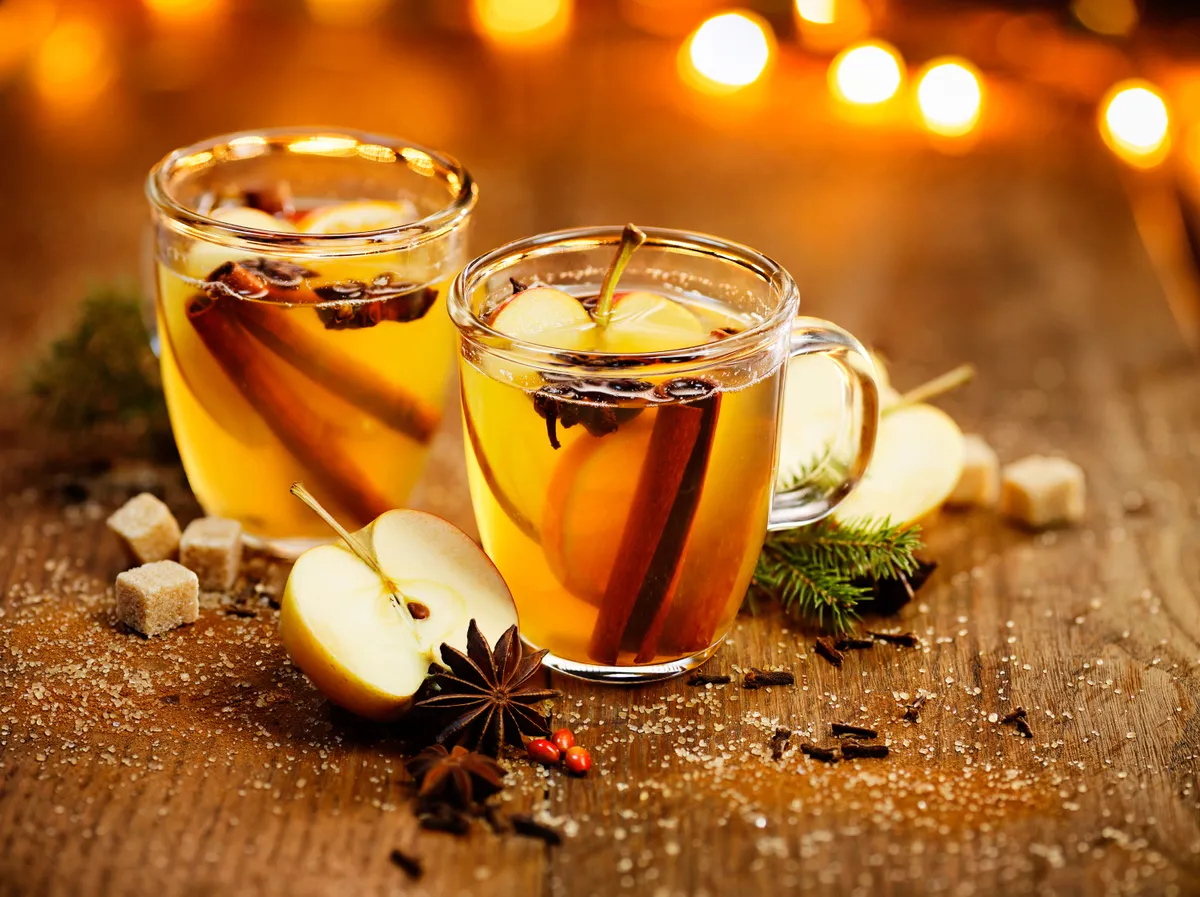
Eggnog
It may come as a surprise to some that eggnog is actually British in origin and not American. Eggnog bears a striking resemblance to Shakespeare’s character of Falstaff’s favourite tipple of beaten egg yolks, milk, sugar and fortified wine known as a sack posset.
Recipes for eggnog vary wildly, but most will agree that brown strong liqueur, anything from sherry, madeira, whiskey, rum or brandy is the lynchpin for this most Christmassy of drinks. Rich and satisfying, beating the eggs separately gives an especially elegant and creamy finish. A blizzard of grated nutmeg on top is essential.
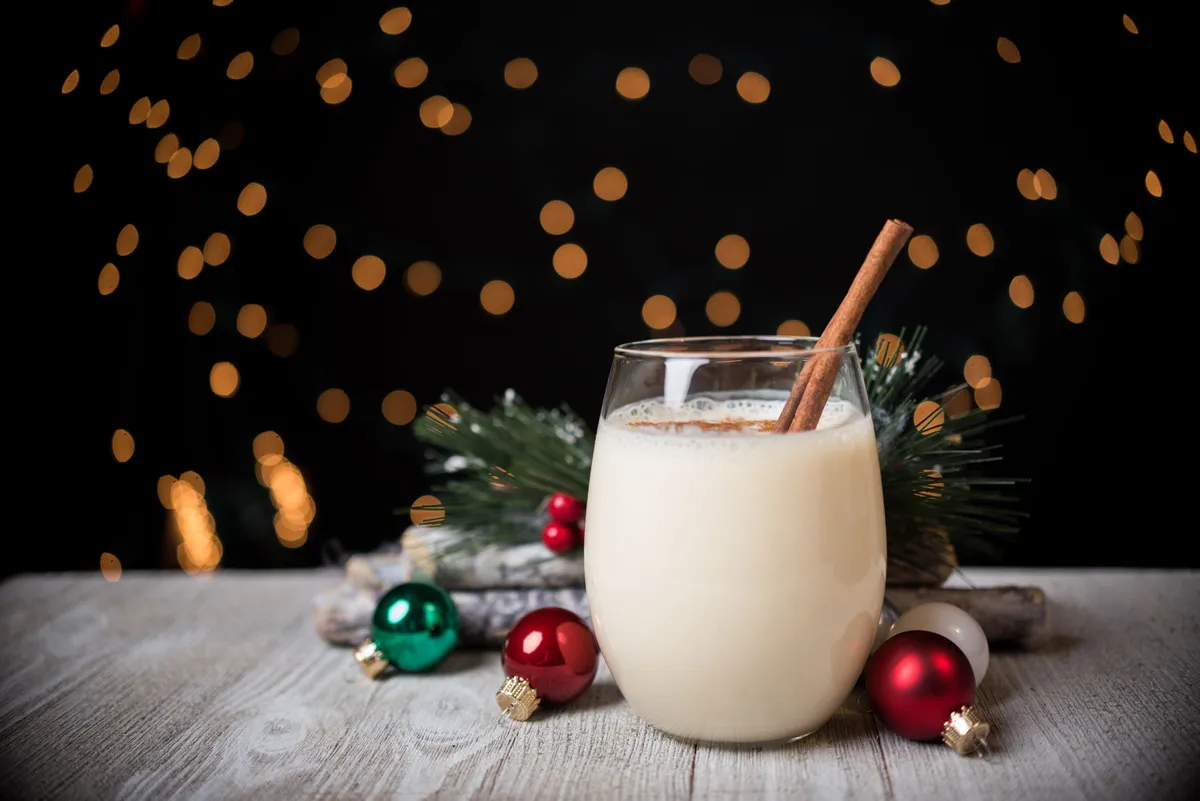
Wassail Punch
To go the whole hog and serve a wassail punch in all its glory, the drink should be fired in steaming measures through the branches of the most prolific apple tree in the orchard. The tree must also be adorned with cubes of cider soaked toast hanging from the branches.
Pots are banged, songs are sung and yet more cider still is poured on the roots of the tree. Evils spirits are warded off and a bountiful harvest is henceforth ensured. Wassailing is an ancient pagan custom most common to the West Country. To this day, mulled apple juice or cider (with or without additional spirits) remains a popular warming drink all winter long.
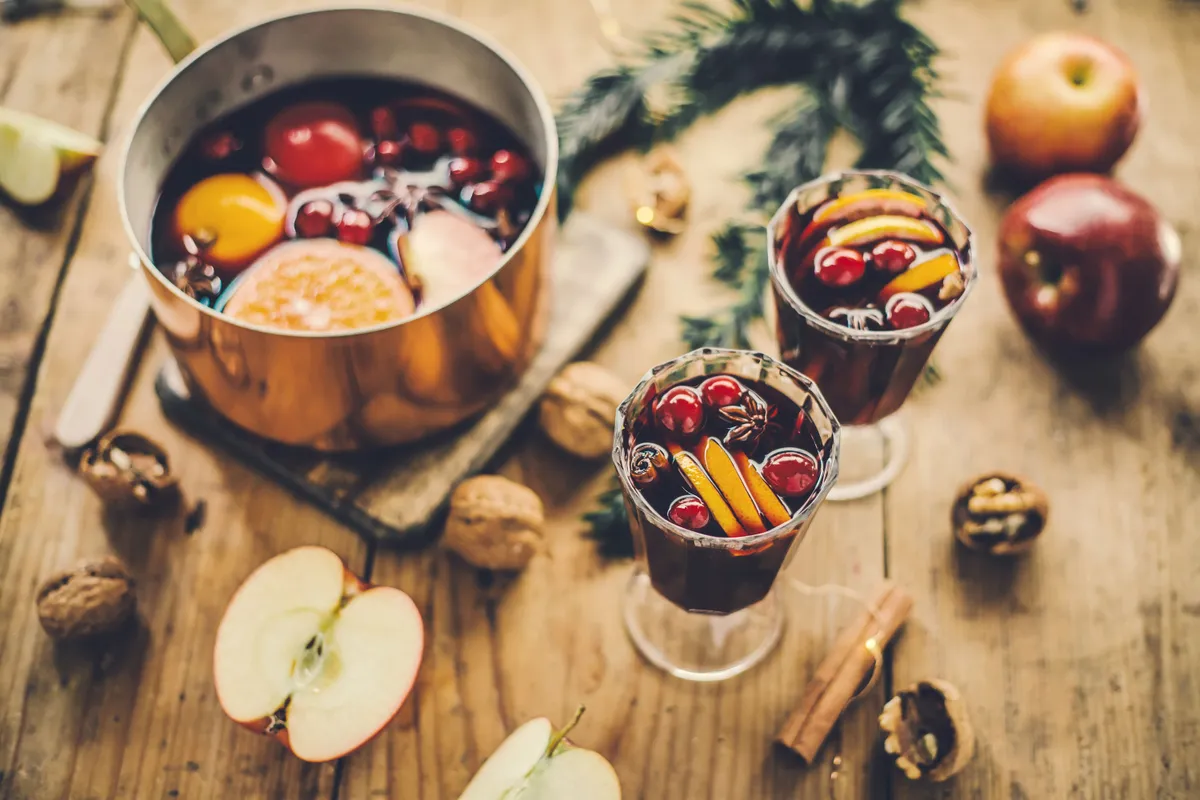
Easy mulled wine
This slow cooker mulled wine recipe is so easy - it only takes 5 minutes to prepare. Leave it to heat while you eat, drink and be merry!
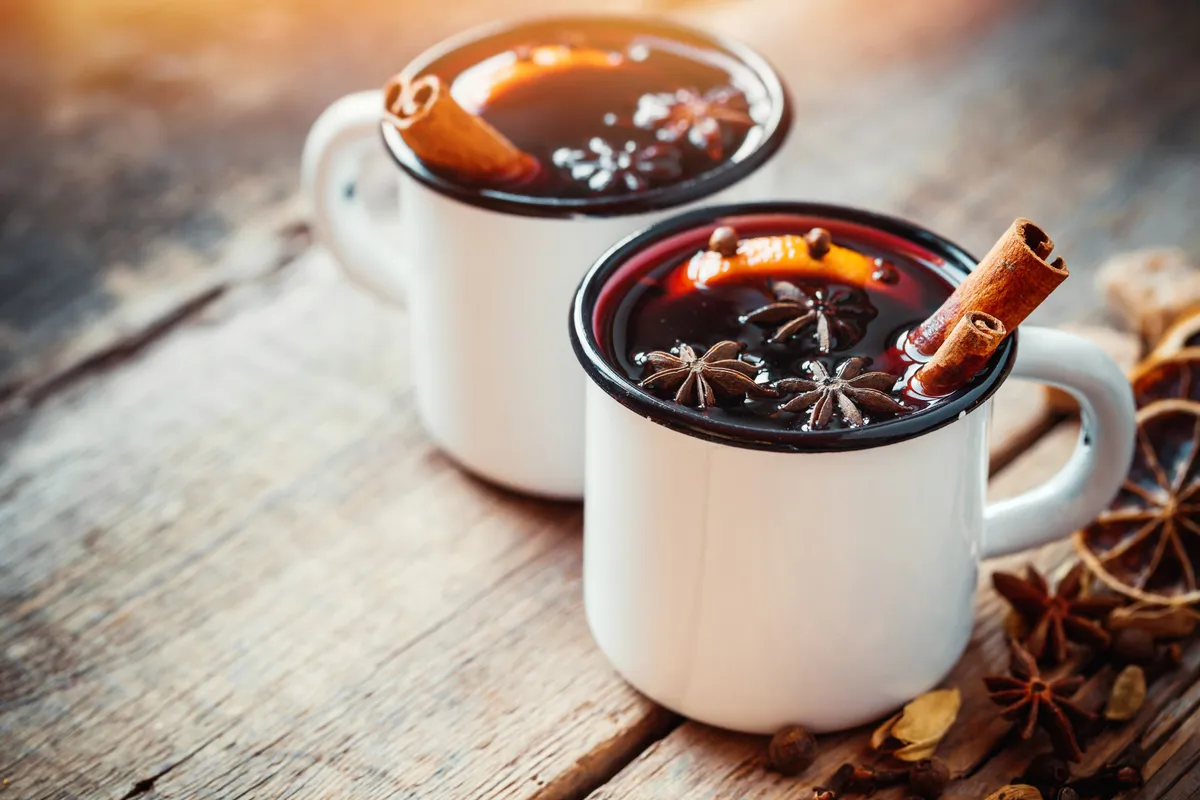
Alternatively, why not make your own mulled spice bag?
This simple but unique gift can be put together in minutes and creates perfect mulled wine every time.
